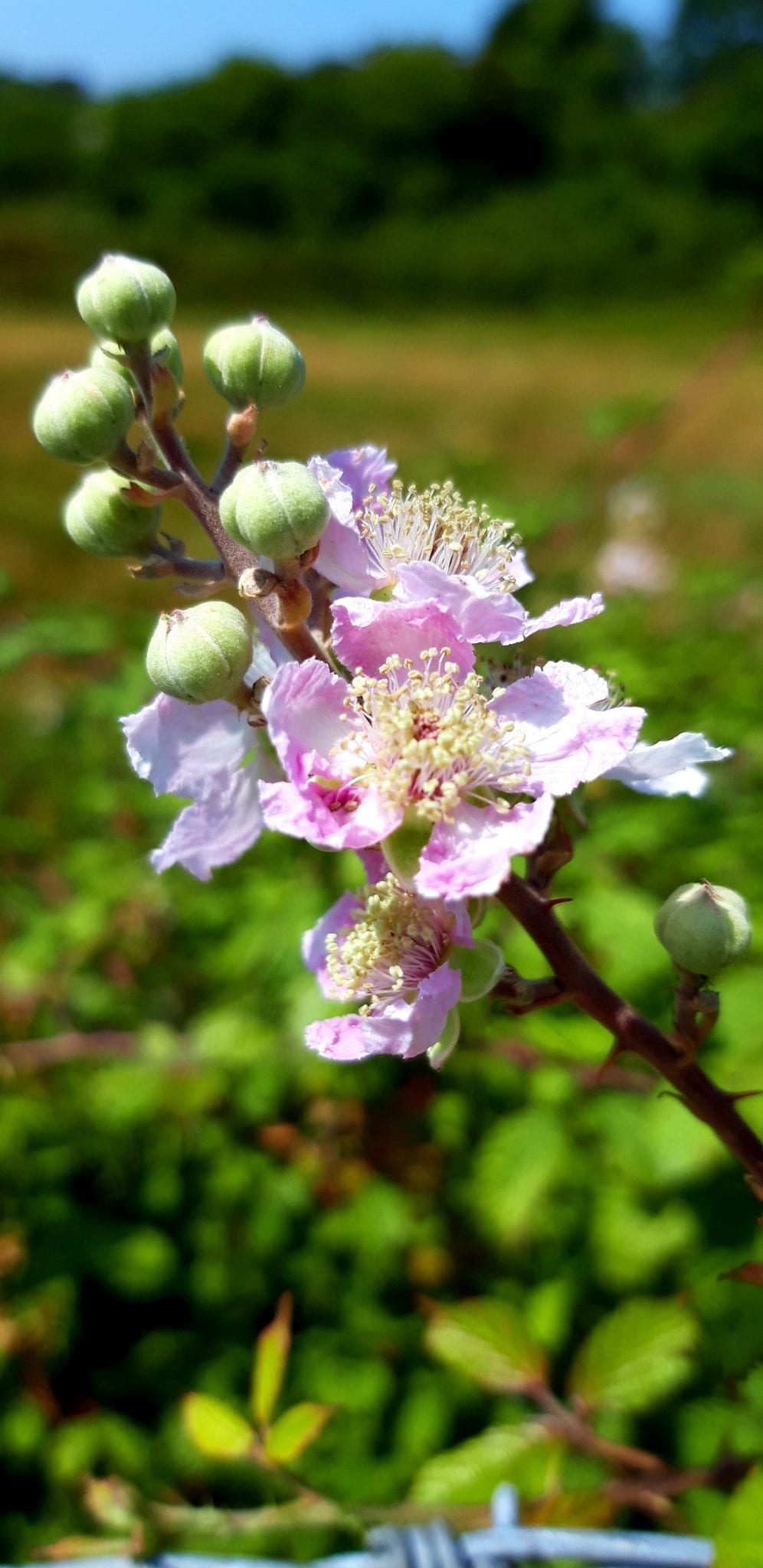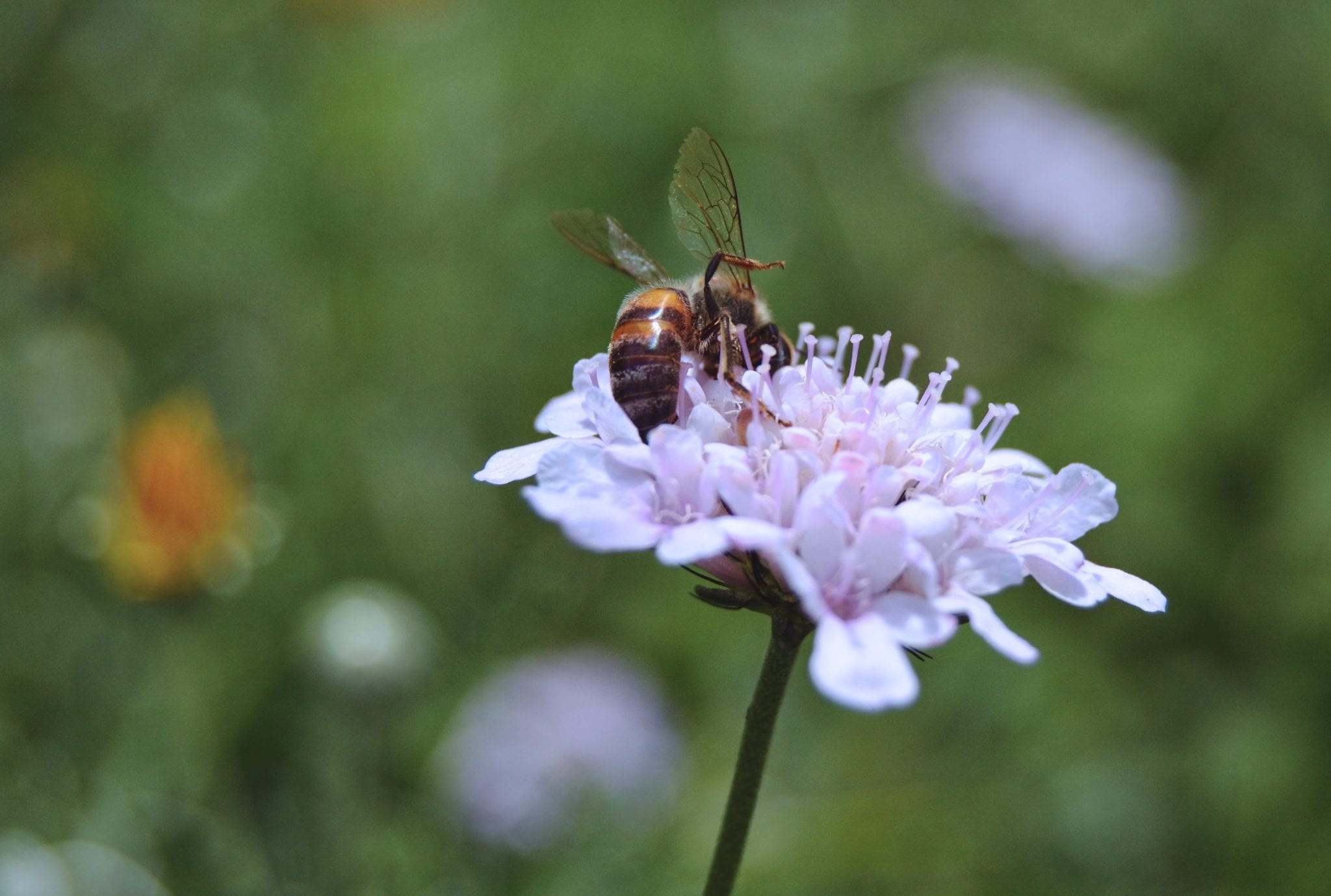Germany
During the 13th Conference of the Parties of the Convention on Biological Diversity (CBD COP13) in December 2016 in Cancun, Mexico, 14 parties set up and signed the Declaration of the Willing on Pollinators. Being one of them, Germany has been with us from the start.

Why did Germany decide to join the coalition?
The release of the IPBES Assessment Report on Pollinators, Pollination and Food Production has led to an increasing worldwide recognition of the importance of pollinators. Pollinators are vital to keep ecosystems functioning and the vast majority of wild plant species relies on pollinators. Those plants are not only an important food source for wild animals, but also for us humans – both directly and indirectly. Pollinators also play a large role for cultivated species. The market value of pollination for crop production has been estimated to be between 235-577 billion USD in 2015 by IPBES.
Germany has joined the coalition because it is important to share experience and knowledge about pollinator status, trends and conservation strategies with other countries. Within the coalition, best practice examples can be disseminated and mutual learning increased. A better cooperation between the member countries will also be beneficial for pollinators in different areas of the world.

The situation in Germany – current status
In Germany, the vast majority of wild and cultivated plant species relies on pollination by insects, with around 80 percent of pollination carried out by bees. Both the total number of insects and the diversity of insect species have fallen sharply in Germany. The latest German red list of vertebrates, published in 2011, indicates that nearly 50% of the 557 assessed bee species are endangered. In 2017, a scientific study pointed to a more than 75 percent decline over 27 years in total flying insect biomass in protected areas. This study has further stirred up the public debate and increased expectations on policymakers. The German Government has decided to take rapid action and therefore developed the “Action Programme for Insect Conservation”.
Action Programme for Insect Conservation
On the 4th of September, the German Cabinet adopted the Action Programme for Insect Conservation, the most comprehensive package of measures for the protection of insects and their diversity in Germany so far. In order to address the key drivers of insect decline and restore living conditions for insects in Germany, the action programme relies on the swift implementation of concrete measures within nine areas of action.
The action programme sets out the following key measures:
- Binding statutory requirements under an insect protection act (“Insektenschutz-Gesetz”) and parallel statutory ordinances with regard to changes to nature conservation law, phytosanitary law, legislation on fertiliser use, and water law
- An additional € 100 million per year to promote insect protection and expand insect research, to be made available by the competent departments
- Protection and restoration of insect habitats in all areas of the landscape and in urban spaces with special consideration to be given to transition and boundary habitats (ecotones)
- Clear guidance on environmentally and ecologically compatible applications of pesticides and a significant reduction in the deposition of pesticides and other harmful substances in insect habitats
- Mitigation of light pollution and insects’ attraction to light
- Promotion and support of civic commitment for the benefit of insects in all areas of society
The action programme comprises federal measures. In order to halt insect decline, additional support at the level of the regional states (“Länder”) and the municipalities will be required as well as active support by society at large.
Other relevant initiatives for pollinator protection in Germany
Previous to the Action Programme for Insect Conservation, the protection of pollinating species has already been part of Germany’s national biodiversity strategy (NBS). The German government‘s Federal Ministry for the Environment, Nature Conservation and Nuclear Safety (BMU) and Federal Ministry of Food and Agriculture (BMEL) ran several awareness campaigns and are funding local and regional pollinator initiatives.
In June 2018, BMU published a call for project proposals aimed at the conservation of insects, their diversity and habitats. For a total number of 56 projects, a financial support through the Federal Programme for Biological Diversity” is possible in principle, then adding up to a funding volume of about € 60 million. The federal funding programme will support the targets and measures of the Action Programme for Insect Protection.

The BMEL and the Federal Office for Agriculture and Food (BLE) have funded 22 research and development projects for pollinators so far totaling around 15 million Euros.
In order to support the conservation of insects and their habitats in rural landscapes, a number of the German agri-environment schemes include options for annual flowering plant strips. As part of the Action Programme for Insect Conservation, the German government has agreed on providing € 100 million per year to promote insect protection and expand insect research (including a nationwide monitoring programme), of which € 50 million are dedicated to insect protection measures in the agricultural landscape.
Initiatives such as “Deutschland summt!” and the Wildbienen-Kataster keep up the general public interest in (wild) bees and hornets. The BienABest wild bee protection initiative (2017-2023) also invests in raising awareness among the general public, including on social media to reach young people. It develops a method of live identification of as many wild bee species as possible and trains young scientists to apply these methods, tackling the shortage of wild bee experts in Germany.
In 2019 and 2020, insects are also an area of focus of the German activities under the UN Decade on Biodiversity 2011-2020. The main focus of activities is to help improve awareness throughout society for insects and their meaning for healthy ecosystems and mankind. Main activities include project competitions, press and public relations work and recognizing the commitment of already existing projects. Every week, a competition highlights a different project that has worked in an exemplary manner for the conservation, sustainable use or awareness of biological diversity.
The Institute for Bee Protection investigates risks to honeybees and wild bees including pesticides, as well as how the design of agricultural and urban landscapes affect bee health and productivity, and the National Reference Laboratory of Bee Diseases is responsible for the coordination of bee disease diagnosis standards and methods. Butterfly monitoring is done by volunteers, coordinated by the Helmholtz Centre for Environmental Research (UFZ) together with the Society for Butterfly Conservation (GfS) since 2005.
Do you want to know more about the efforts of Germany? Or do you want to get in touch?
For more information reach out to Janina Heim (Janina.Heim@bmu.bund.de) or Mira Nuernberg (Mira.Nuernberg@bmu.bund.de)
